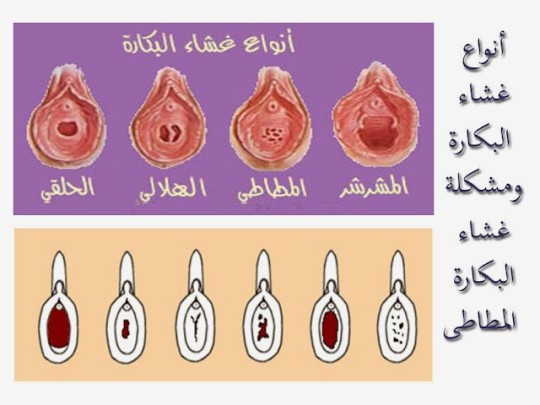#imperforate
Text
Some intersex flags! (Part 4)
And finally, part 4! This covers the last of the formerly-flagless intersex variations/traits. (Here are parts one, two, and three.)
Now all of the main (discovered) traits/variations have been covered!
All thats left are hyper-specific conditions that can cause intersex traits/variations (such as "hand-foot-genital syndrome"), and we aren't planning to make flags for those, as there are thousands of them.
Please read (and reblog) our intersex guide. It is so important to understand intersex people, their bodies, and their health!
All of these flags are based on the Zero-V (vaginal agenesis) and Micro-P (micropenis) flags by @thirdsexmanifesto.
Urethral Agenesis

The orange represents the urinary tract. The yellow circle crossed out represents incomplete or absent urethra.
Vaginal Hypoplasia

The black triangle is inspired by how demisexual/demiromantic flags are set up, as to imply that the vaginal entry is still present, but only partially.
Imperforate Hymen

The X over the circle is meant to represent the hymen blocking the entry.
Microperforate Hymen

The X over the circle is meant to represent the hymen blocking the entry. Unlike the imperforate hymen flag, the X doesn't cover the entire circle, which is meant to represent how the vagina is not fully covered.
Cribriform Hymen

The circle with the multiple Xs are meant to represent the small entrances in the hymen.
Septate Hymen

The circle with the slash through it is meant to represent the septate hymen stretched across the vaginal entrance, splitting the entrance in two.
Vaginal Septum

The symbol is a combination of the TVS, obstructed hemivagina, and LVS symbols. This flag is for those with any of those three variations.
Transverse Vaginal Septum (TVS)

The symbol is meant to represent the tissue running horizontally across the vaginal canal.
Obstructed Hemivagina

The symbol is meant to represent the hemivagina within the vaginal canal.
Longitudinal Vaginal Septum (LVS)

The symbol is meant to represent the tissue running vertically across the vaginal canal.
Labial Hypoplasia


The first flag is when both of the labia are absent. The second flag is when only one of the labia is absent.
Clitoral Hypoplasia

The little black triangle represents the small clitoris.
Clitoral Aplasia

The X over the triangle represents the lack of clitoris.
Penile Agenesis

The X over the triangle represents the lack of penis.
Congenital Buried Penis

The triangle under the line represents the penis buried beneath the skin.
Aposthia

The white wrapping around the end of the triangle with the X overtop it represents the lack of foreskin.
Microorchidism

The small circle with the minus symbol represents the microtestes. The large circle surrounding it represents the typical/average teste-size.
Cryptorchidism

The black line represents where the teste is expected to be. The black circle being within the grey, away from both the pink and the line, represents the teste being elsewhere within the body.
#lgbt#lgbtq#lgbtqia#lgbt pride#queer#educate yourself#body diversity#diversity#intersex spectrum#intersex community#intersex#vaginal hypoplasia#imperforate hymen#microperforate hymen#cribriform hymen#agenital spectrum#agenital#the agenital spectrum#septate hymen#vaginal septum#longitudinal vaginal septum#transverse vaginal septum#lvs#tvs#hemivagina#obstructed hemivagina#pride flag#flag coining#penile agenesis#penile aplasia
41 notes
·
View notes
Text
wait wait so does having an imperforate hymen makes me intersex??
#🤡.txt#forreal??#I just got it diagnosed super recently and I was looking on the imperforate tag just for curiosity#and everybody’s saying it’s an intersex trait?#am I intersex now? Will I be intersex after I get hymenectomy??
2 notes
·
View notes
Note
I’m an intersex person, and my condition is imperforate hymen. We’re left out of the conversation or intentionally excluded a lot. (Despite literally not being born with a vaginal opening??). I’ve just felt so invalid lately, could I please have a hug?
Of course!!! You're completely valid, your condition exists and is part of our community and you shouldn't feel left out or excluded. 🫂
2 notes
·
View notes
Text
#imperforate hymen#treatment of imperforate hymen#best gynecologist in south mumbai#best gynecologist in mumbai#top gynecologist in mumbai#famous gynecologist in mumbai#dr neelima mantri
0 notes
Text
انواع غشاء البكارة
هناك ثلاثة أنواع رئيسية من غشاء البكارة:
1- غشاء البكارة الغشائي (Hymen): وهو النوع الأكثر شيوعاً، ويتكون من طبقة رقيقة من الغشاء المخاطي الممتد على فتحة المهبل. وقد يكون هذا الغشاء مرناً ويمتد عندما يتعرض للضغط أو الانفتاح تدريجياً عبر الزمن، والتمارين الرياضية أو الأنشطة اليومية.
2- غشاء البكارة الشرجي (Imperforate hymen): يعتبر هذا النوع نادر جداً، ويحدث عندما يكون غشاء البكارة مغلقاً…

View On WordPress
1 note
·
View note
Text
WHAT LOSING YOUR V CARD IS LIKE

Post Warning: Minors don’t read this post. Also remember that you should take this with a grain of salt because the whole chart matters. These are isolated placements
Why the 5th house represents losing your virginity?: Due to derivative astrology the 5th house can tell us about our virginity being lost! This is because the 6th house represents innocence while the 12th house represents losses (using the 12th as the ascendant it would be 12,1,2,3,4,5). You can also check your 5th house ruler for more insight on this though!
What this post refers to: This post represents losing your virginity as in having sex for the first time. This does not include losing it to cucumbers, hair brushes, toothbrushes, or any other foreign items you shove in your gushy.

Aries 5h
It may hurt and you may bleed a lot when losing it since Mars represents pain and blood. One person I met with this placement had what’s called an imperforate hymen and had to get it surgically removed. Although there may be physical pain though it will still be very passionate sex. The person you lose it to will have deep sexual desire for you. There will be a lot of flirtatious energy and sexual tension leading up to you losing it. You will be very turned on.
Taurus 5h
It will be a very sensual and calm experience for you. You will probably lose it to someone that you’re dating at the time since Taurus is ruled by Venus, the planet of romance. You could lose it somewhere very fancy and high class as well. Example: Your date could take you to a fancy hotel to lose it. This can also mean that the process is very slow since Venus is associated with sloth.
Gemini 5h
There will be healthy communication between you and the person you lose it to. You could meet the person you lose it to at school or through social media. The person you lose it to may use things they learned through p*rn so make sure to tell them that’s not realistic and tell them what you really like! I also recommend not making any s*x tapes with this placement as it can indicate getting leaked more easily than the average person.
Cancer 5h
You’re going to lose it in your house or your sexual partners house. This is a good placement to have because it can mean you will feel very comfortable and the person you lose it to will be very considerate of your feelings during s*x. However, the downside to this placement is that you could possibly get pregnant after losing it so use protection and be very careful. Something random I will add is if you don’t lose it at a house you could possibly lose it near bodies of water. Example: My friend has this placement and lost his virginity at the beach.
Leo 5h
You’re going to lose it to someone that makes you feel very confident in bed. The person you’re losing it to will be very generous toward you s*xually and praise you in bed. You weirdly could lose it in a more public place with Leo in the 5th house. With this placement you will likely leave the experience feeling very happy with how it went.
Virgo 5h
Since this sign is associated with “innocence” the person you lose it to could also be a virgin like you. The person you lose it to will make sure that you’re pleased before they are. You could possibly feel scared to because you want to be really good at it due to your perfectionism in the bedroom but remember that we all start somewhere and you will improve over time.
Libra 5h
You will lose it to someone you’re in a long term relationship with at the time/someone you’re dating since Libra is ruled by Venus, the planet of romance. There will be a very flirtatious vibe between you two leading up to it and you will feel a huge romantic spark. Venus is the planet of harmony which can mean losing your virginity is actually a harmonious experience for you and goes well.
Scorpio 5h
You will lose it to someone you’re very sexually attracted to. If you’re a girl and have this placement consider yourself lucky because with Scorpio being ruled by Pluto (the planet associated with org*sms) you will likely finish your first time. Most girls don’t because they have to get the hang of things and become more comfortable in order to. The s*x between you two will be very passionate and rough. At worst with Scorpio being primarily ruled by Mars it could indicate it being a painful experience.
Sagittarius 5h
You could lose your virginity while traveling. You will lose it to someone that’s pretty experienced most likely. After losing it you may find yourself wanting to explore s*x with a lot more people. Since Sagittarius is ruled by Jupiter the planet of ease this could be an experience that comes at ease for you. You could possibly lose it someone you met at college/university.
Capricorn 5h
You will lose your virginity at an older age (depending on your other s*x placements). Most of the people i’ve met with this placement lose it after 20 (the average age is 17 years old). Before losing it you could have lots of fear leading up to it due to anxiety. The person you lose it to will likely be older and have more experience than you though making you more comfortable.
Aquarius 5h
You could lose your virginity to someone you’re friends with (possibly a friends with benefits situation). This could be someone you met online since Aquarius is ruled by Uranus, the planet of technology. This could be something that is spontaneous and unexpected that you randomly decide to do. Since Uranus also represents uniqueness you could lose it in an unique location or have a very unique experience when losing it.
Pisces 5h
Majority of people that i’ve met with this placement lose it in their bed since Pisces is ruled by Neptune the planet associated with sleep. The person you lose it to will be very kind and compassionate toward your sexual needs and have strong sexual fascination with you. With this placement you could lose it to your soulmate.

Don’t copy my work - novy2sirius

#v card#virginity#losing your v card#astrology#astrology blog#astrology chart#birth chart#astrology community#astro community#5th house#derivative astrology
559 notes
·
View notes
Note
do you now have, or have you ever had, an imperforate hymen?
An imperforate hymen is a congenital disorder where a hymen without an opening completely obstructs the vagina. It is caused by a failure of the hymen to perforate during fetal development. It is most often diagnosed in adolescent girls when menstrual blood accumulates in the vagina and sometimes also in the uterus.
22 notes
·
View notes
Note
Hi I'm a former high school science teacher and now a doctor. While teaching, I was officially advised to explain that current understanding of gender is that it is complex and that sex is not necessarily the same as gender. I also got told not to mention intersex people outside of explaining that they exist, because tbh 14 year olds need to understand the normal stuff first.
I can also confirm that during medical school I was officially taught that "we refer to patients as male or female because man and woman are complex terms that do not adequately describe our patient population". We also did not use the term intersex at all, we generally referred to either "sex variants" or (in newborns/paediatric patients) we would refer to "disorders of" or "differences of sexual development" (DSDs).
There's not a hard and fast difference between "disorder" of sexual development or "difference", but generally it got called a disorder if it mandated surgical correction (e.g. vaginal agenesis, cloacal exstrophy, severe hypospadias, urethral atresia etc). If you didn't have to operate to prevent irreparable harm, it usually got called a "difference". We try not to recommend operations that aren't biologically necessary, but parents are currently permitted to request them and generally it'll be approved - though if I were the surgeon (which I'm not) I would probably request a different person perform it because I am not comfortable with unnecessary genital surgeries on unconsenting children.
Medicine currently recognises that sex and gender are not synonymous, that correlation is not causation, and that intersex conditions come in a wide variety of forms and functions. We also do not have a clear idea of whether something like hypospadias or imperforate hymen even COUNT as intersex disorders, even if they're definitely DSDs, and it's not very important because "intersex" isn't really a medical term.
Thank you so much for this perspective! I'm really happy, honored, and excited that I got the opinion of a doctor on this stuff.
I do have a couple of poorly articulated, rambly thoughts here, which I hope don't come off as criticizing you, because I'm just trying to build off of what you're saying and possibly get your perspective.
"male" and "female" are still interesting terms to me, and still have some of the same pitfalls as "man" and "woman". This is purely my own opinion, I don't want to falsely represent how scientists and doctors use them, but I personally use them more frequently as adjectives for individual parts of a body. Mostly, I do this to refer to myself. Because... Am I currently male, or female? I have a typical male height, male genitalia, but female physiology, female fat distribution, female hormonal systems, etc. It's hard for people to think of biological sex as dynamic and changing, but if you want to accurately describe me, that's what I am currently.
And yeah, you can totally use male and female to refer to individuals who dominantly have those male or female traits overall. But you have to be ready to get nuanced about it- which is exactly what you're doing here, which I appreciate.
It's also somewhat useful when referring casually to hermaphroditic organisms, although by that point you're probably just using more specific terms. I digress. I'm rambling.
I have a barely-relevant tangent here that I'm gonna put under the cut. There's an interesting parallel here between another linguistic quirk of terminology in genetics.
When a gene varies by a single base pair (eg, one of the As, Ts, Cs, or Gs is something else, or has been deleted or added), it can change the function of the gene. Sometimes, this is called a mutation- which, yes it is. Mutation implies a deviation from the general population, a distinct molecular event that happened which now exists in the gene pool in small numbers.
The trouble lies with assuming what the "default" form of the gene is. When gene A is say, 50% G at a certain location, and 50% T at that spot, it's called a SNP- single nucleotide polymorphism (often pronounced as "snip").
But what's the cutoff? 80-20? 95-5? 99-1? More extreme? What about SNPs
This is purely a linguistic thing, and in scientific contexts, people know what you're talking about based on the context around the words you use.
SNP as a term has p much been around for as long as genetics as a field. Within the field, I don't think anyone cares much, except as a discussion topic to get undergrads interested. However, I do think it's important for scientific communication- mutation has a much different connotation in people's minds than SNP, a term they may have never heard or feel neutrally about. The same can be applied to sex- the way we talk about male/female traits is extremely relevant to public perception. It's very similar to the terminology you're talking about here. And I'm really glad that medicine acknowledges that!!
In general, I think that these linguistic debates can seem trivial to professionals- but it dramatically affects public perception. There's whole other rambles here about how scientists and doctors generally don't know how to talk to non-scientists and non-doctors, but that's a whole other thing.
21 notes
·
View notes
Photo





Vintage space-themed stamps - available in my shop.
1) 1963 - $6 Sold
2) 1963 - $3
3) 1972 - $4 Sold
4) 1977 - $2.50
5) Minisheets, $2.50 each (the right one is imperforate CTO). Sold
Shipping $5 (with tracking number)
Message me to buy!
How to buy. Other items in my shop. I combine shipping if you buy more than one item.
133 notes
·
View notes
Note
Could you elaborate on imperforate hymens? I didn't want to derail the reblog chain to ask about it but I've never heard of this medical issue before...
An imperforate hymen essentially means that, instead of a thin, semilunar membrane surrounding the vaginal opening, there’s a thick membre extending all the way across the area a normal hymen would occupy, completely blocking the vaginal opening. It’s a congenital condition that’s usually diagnosed around puberty, because menstrual blood gets trapped and can’t pass through. It’s easily removed by a minor surgery, which is essential to the girl’s health and well-being, because trapped, rotting blood is an excellent breeding ground for infections, and being trapped in the vaginal canal gives it easy access to spread quickly and viciously. These infections can be fatal.
In rural areas of Egypt (and other similar countries) male doctors routinely refuse to perform the simple operation because, and I quote, ‘it’s best to let her die than to defile her honour’. Which is vile and demonstrates perfectly the point the OP of that post was making about the extent of doctors’ ability to gatekeep healthcare based on personal belief.
165 notes
·
View notes
Note
I cast upon you:
Imperforate anus
ack I have been sealed from the behind
12 notes
·
View notes
Note
Read that last anon as “fake ass and cunt. Literally”. Imagine being trans AND having been born with imperforate anus. Both holes reconstructed
never even considered the reading of 'fake cunt' to apply to like. an actual cunt. to me neovaginas are the realest cunts out there so it never crossed my mind...
20 notes
·
View notes
Text
THE HYMEN IS A PROBLEM, STILL. VIRGINITY, IMPERFORATION, AND CONTRACEPTION, FROM GREECE TO ROME by Giulia Sissa
#interesting#article#virginity#anatomy#female anatomy#ancient greece#parthenia#parthenoi#women#ancient rome
3 notes
·
View notes
Note
I'm writing a story and I'd like to how trans people get/treat STDs. If they haven't had bottom surgery is it no different than someone with those parts who is cis? But if they have, what differences are there? How about someone with no genitals?
In general it's pretty much the same as it would be for cis people. Bloodwork and a urine sample are the standard, and aren't really any different based on what someone's genitalia is like.
Pap smears and other sorts of exams can be dysphoria inducing as well, and there's some situation where it may be difficult to use a speculum because of atrophy (which can be for all sorts of reasons, hormones, vaginismus, imperforate hymen, intersex stuff). And people whose vaginas are surgically constructed don't typically have a cervix, so pap smears don't really get done as far as I know. (Sometimes speculums are used for other things though, like making sure everything is healing right, trimming or removing stitches from surgery, etc.)
But for the most part, the differences for STI testing specifically are mostly social, and can go different ways based on who is administering the test. Pap smears are in particular stressful for trans people who may have genitalia that's been altered by hormones. (I know it's irrational but the worry about getting a boner during a pap test, for instance, has crossed my mind a lot.)
Some other testing can be thrown for a loop because of the way procedure etiquette works. I had to have a transvaginal ultrasound once to check for ovarian cysts and there were definitely parts of it that were weird for me. (Transvaginal ultrasounds involve the ultrasound wand going inside the front hole for an accurate reading of specific parts of the reproductive system.) For instance, the ultrasound tech was a cis man and as part of their protocol, a cis woman nurse had to be in the room while I underwent this procedure. I hadn't asked about that ahead of time or really thought anything about it - I was in the emergency room trying to get to the bottom of extreme abdominal pain and I figured I could endure what I needed to. But in an ideal world, I'd be able to ask for a non cis person to be in the room with me I think. (I came in an ambulance, which would not take my partner with me.) (It turned out to be a 4mm kidney stone by the way, no ovarian cysts.)
Another anecdote that may be relevant to this topic is that sometimes doctors get weird about not knowing what you're testing for, because they don't know what body parts you have (and which were added at what points, made of what material). Prior to the transvaginal ultrasound, a doctor asked me what "chromosomes" I had. I honestly told him I did not know, I hadn't ever had a karyotype test as far as I knew. The doctor stumbled over himself a lot and I don't remember what else he said right after that, other than he was fumbling, got corrected, and that he was clearly Trying His Best. I interrupted the second or third useless question with, "are you asking if I have ovaries in case it might be a burst ovarian cyst or something?"
He was instantly relieved and said yes, so I told him.
There's a big problem I've noticed, that when people talk about these sorts of topics, they aren't specific enough in order to address what they mean. We use euphemisms like "assigned female" because people don't know that someone "assigned female" can have literally any body type. People seem afraid to name body parts, so they use euphemisms that rely on stereotypes and assumptions in order to be understood. But when you realize that people "assigned female" can be intersex, can have hysterectomies, can have testes, can have phalloplasties, and that everyone's parts are more or less analogous (skenes gland = prostate, etc), you realize how useless these broad categories are. If you want to ask if someone could carry a pregnancy, ask if they could carry a pregnancy. Not if they have certain chromosomes or were DFAB. Specifics matter. If I knew I was XY, that doctor would probably have assumed that the pattern of people with XY chromosomes not menstruating would include me. And if I did have ovarian cysts, or even a pregnancy, this could have dramatically impacted my health outcomes. (There have been stillbirths because of situations like this where people did not act fast enough because of ignorance around trans bodies.) I could have given in and guessed my chromosomes when the doctor asked, but what if my answer turned out to not be true? And what if the lack of confidence in my answer saved my life in some way?
I realize this is pretty far deviated from your original topic, but in terms of testing difficulties, it does feel like the sort of anecdote that would be very informative about these issues.
- mod nat
#mod nat#trans#writeblr#writing advice#reproductive care#reproductive health#reproductive freedom#pregnancy and reproductive#reproductive autonomy#doctors#medical#trans: medical#trans: bodies#hey don't plagiarize my life by the way#I feel like this should go without saying but someone sent an ask some years ago wanting to ask about my child abuse experience#for their writing. and it just felt really uncozy because this is not ScriptTrauma or ScriptTorture and I didn't sign up for that#just because I share a thing to illustrate a concept does not make it your writing material#it's just an example. plus I'm going to write about it myself. get yer own life experiences to write about etc
30 notes
·
View notes
Note
hello! i was wondering, what are your thoughts on microperforate and imperforate hymens as an intersex trait? i’ve done some research on it and there’s a lot of conflicting information, so i was curious to hear your opinion
as far as im aware, it can be an intersex trait. sydney kidney bean, on tiktok, is an intersex person with that variation. altho i believe they also have higher androgens naturally, their hymen variation is still important.
to me, intersexuality encompasses any natural sex characteristics that fall outside the sex binary norms. sometimes that can mean not having certain parts, or having parts that didn't develop as expected. i think imperformate and microperforate hymens fall under that.
20 notes
·
View notes
Note
Hi sex witch,
I can’t seem to find my vaginal opening. There’s just no where for a finger or tampon to go, it just feels like hitting a wall. I’ve used a mirror to see what’s going on and I can see where it should be, but there doesn’t seem to be any hole. I get my period like normal so theoretically there’s gotta be a hole but I can’t find it. Is there something going on here? All I’ve found online is stuff about the hymen, but is it possible for the hymen to seem so,, solid?
Thank you for any advice you have!
hi anon,
oh boy! what a pickle. there are rare cases of the hymen failing to naturally wear away from the vaginal opening and making penetration painful, difficult, or downright impossible. this is called an imperforate hymen, and could be what you're experiencing.
however, that wouldn't explain a barbie-like lack of opening altogether. as you've observed, if you're able to menstruate there is absolutely a vaginal opening down there somewhere. even if you're unable to put items in it easily, it is there. if you're concerned about any irregularities, getting a pelvic exam with a healthcare provider is the best way to go.
26 notes
·
View notes